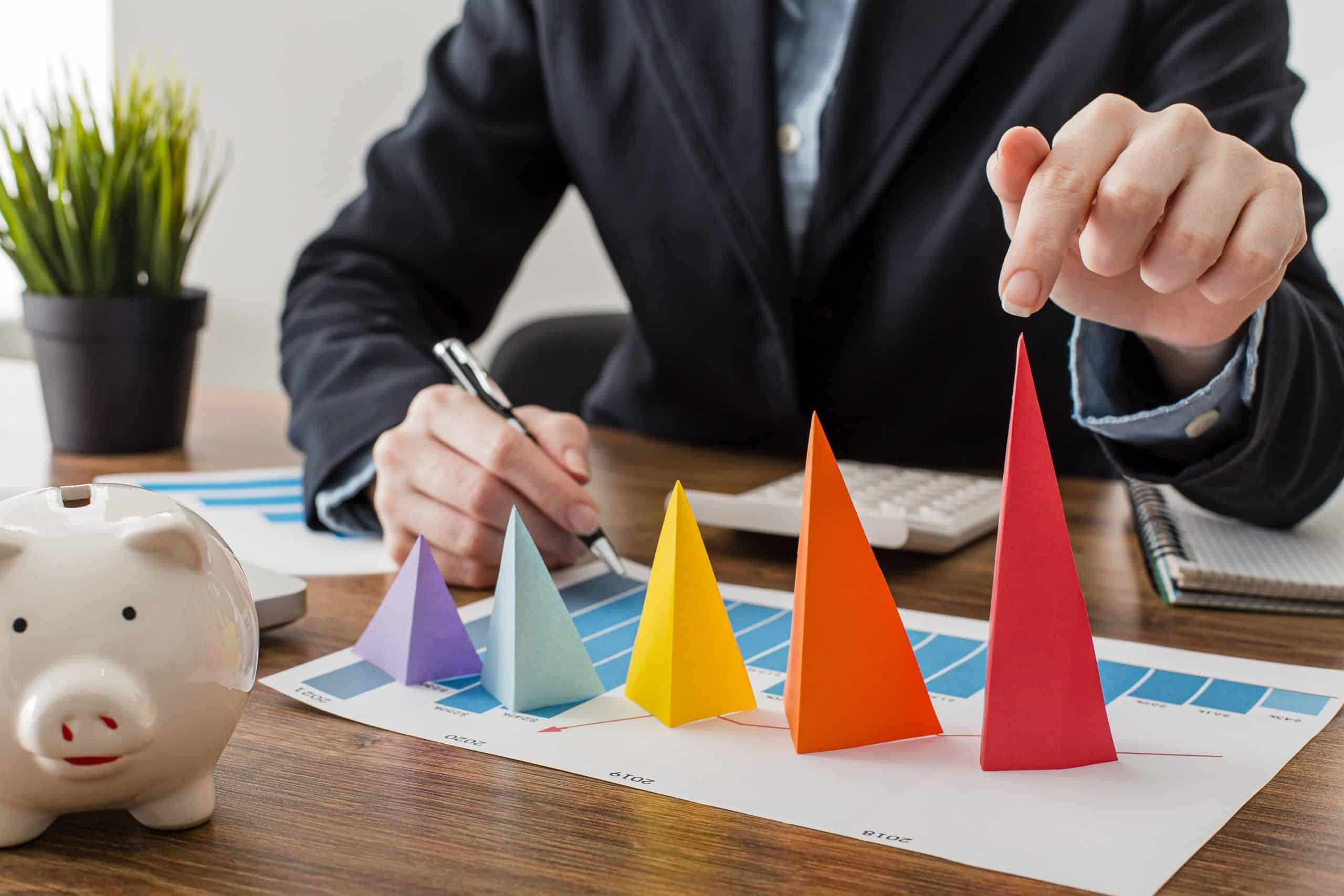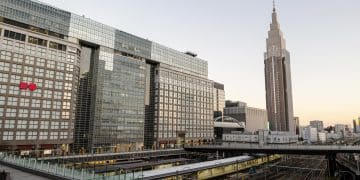Global inflation impact on economic growth: what’s at stake?

Global inflation impacts economic growth by affecting consumer spending, investment decisions, and overall financial stability, prompting the need for effective mitigation strategies such as budgeting and diversified investments.
Global inflation impact on economic growth is a topic that resonates with many, especially given the current economic climate. You might wonder how rising prices influence your daily finances and job prospects. Let’s explore this pressing issue together.
Understanding global inflation
To truly grasp the impact of global inflation, it’s essential to first understand what inflation is and how it affects economies around the world.
Inflation occurs when the general price level of goods and services rises, which diminishes purchasing power. Waiting for prices to stabilize can be frustrating, especially in uncertain times. Let’s delve deeper into understanding global inflation.
What Causes Global Inflation?
Several factors contribute to rising inflation, including:
- Demand-pull inflation: This occurs when demand for goods and services exceeds supply.
- Cost-push inflation: This happens when production costs increase, leading to higher prices for consumers.
- Monetary policy: Central banks may create more money, resulting in less value per unit.
- Global events: Events such as natural disasters or geopolitical conflicts can disrupt supply chains and increase costs.
As you can see, inflation is influenced by a complex mix of factors. It’s not just about prices going up; it’s about the dynamics of how economies function worldwide.
The Effects of Global Inflation
Rising inflation can have various effects on economic growth, including:
- Reducing consumer purchasing power
- Increasing interest rates as central banks attempt to control inflation
- Encouraging consumers to spend quickly, fearing further increases in prices
These factors can paint a picture of an economy struggling to maintain balance. When inflation is high, individuals and businesses feel the pressure to adapt.
Understanding global inflation is crucial, as it shapes policies and financial decisions. It is on the minds of governments, corporations, and families alike.
Key drivers of economic growth

The key drivers of economic growth play a vital role in shaping how economies expand and thrive. It’s important to identify what factors contribute most significantly to growth. These drivers are essential not just for understanding current economic conditions, but also for predicting future trends.
Investment in Infrastructure
One major driver is investment in infrastructure. Improved roads, bridges, and ports facilitate trade and reduce transportation costs. This leads to increased business efficiency and productivity.
Successful infrastructure projects can:
- Boost local economies by creating jobs.
- Enhance access to markets for both producers and consumers.
- Attract foreign investment by providing essential services.
When governments prioritize infrastructure, they set the stage for comprehensive economic development.
Technological Advancements
Technological advancements significantly contribute to productivity. New technologies streamline processes, reduce costs, and foster innovation. Businesses that embrace technology are often more competitive in the global market.
These advancements can lead to:
- Higher output with fewer resources.
- Access to new markets through digital platforms.
- Creation of entirely new industries and job opportunities.
Companies that invest in research and development pave the way for breakthroughs that drive long-term growth.
Education and Workforce Development
The quality of a nation’s workforce directly influences its economic growth. Education and workforce development are critical in equipping individuals with necessary skills.
Key aspects include:
- Increased productivity through a skilled labor force.
- Innovation driven by a well-educated population.
- Better employment opportunities that enhance economic conditions for families.
Investing in education helps create a resilient economy capable of adapting to changing markets.
By focusing on these key drivers, nations can foster sustainable growth. Understanding these factors is crucial for policymakers and business leaders alike.
The relationship between inflation and investment
The relationship between inflation and investment is crucial for understanding economic dynamics. Investors often consider inflation when making decisions about where to allocate their money.
Inflation affects the rates of return on investments. When inflation rises, the value of money decreases, which can erode profits. Investors need to think carefully about how inflation impacts their portfolios.
How Inflation Influences Investment Decisions
Several ways inflation can influence investment decisions include:
- Interest Rates: When inflation increases, central banks often raise interest rates to control it. Higher rates can discourage borrowing and investment.
- Asset Allocation: Investors may shift their focus to assets that traditionally perform well during inflationary periods, such as real estate and commodities.
- Corporate Spending: Businesses might hold back on investments during high inflation, fearing reduced consumer spending power.
These factors highlight how inflation can lead to more cautious approaches among investors.
Impact on Different Types of Investments
Different types of investments react differently to inflation. For instance, stocks can sometimes fare better than bonds during inflationary times if companies pass on costs to consumers. Conversely, bonds may lose value as interest rates rise.
Investors might seek inflation-protected securities, like TIPS (Treasury Inflation-Protected Securities), which offer protection against rising inflation. Real estate can benefit too, as property values and rents often increase with inflation.
Understanding the relationship between inflation and investment allows investors to adapt strategies. Being aware of how inflation can impact the economy helps in making informed decisions.
How inflation affects consumer spending

Understanding how inflation affects consumer spending is vital in today’s economic climate. As prices rise, consumers feel the pinch and make adjustments to their spending habits.
When inflation increases, the purchasing power of money decreases. This means that consumers can buy less with the same amount of money. As a result, many people reassess their budgets, focusing on essential items over luxury goods.
Changes in Spending Habits
Some common changes in spending habits during inflation include:
- Prioritizing Necessities: Consumers tend to buy food, housing, and healthcare first.
- Curbing Discretionary Spending: Items like vacations, entertainment, and dining out may be postponed or eliminated.
- Seeking Discounts: Shoppers often look for sales, coupons, and promotions to save money.
Businesses can adapt by offering special deals to meet shifting consumer demands.
Impact on Brand Loyalty
As prices rise, brand loyalty may be tested. Customers might switch to cheaper alternatives if their favored brands increase prices too much. They are likely to seek brands that offer better value for their money.
This change can harm businesses that fail to adjust their strategies. Maintaining quality while keeping prices competitive is key to retaining customers during inflationary periods.
Overall, the effects of inflation on consumer spending shape not only individual choices but also how businesses operate in the market. Awareness of these trends helps both consumers and companies navigate economic changes effectively.
Strategies to mitigate inflation impact
When faced with rising prices, finding effective strategies to mitigate inflation impact becomes essential for both consumers and businesses. Adapting to inflation can help maintain financial stability and growth.
One strategy for consumers is to create and stick to a budget that accounts for higher costs. By prioritizing essential expenses and cutting back on non-essential spending, individuals can better navigate inflation.
Buying in Bulk
Another effective approach is buying in bulk. Purchasing items in larger quantities can lead to cost savings. This is especially true for non-perishable goods like canned foods, toilet paper, and cleaning supplies. Bulk buying can provide:
- Cost benefits: Lower prices per unit can save money over time.
- Reduced trips to the store: This can save on fuel costs and time.
- Security against shortages: Stocking up can prevent running out of essential items.
Investing in energy-efficient appliances can also reduce long-term costs. As energy prices rise, these appliances can help lower utility bills.
Diversifying Investments
For businesses and investors, diversifying investments is key. Spreading investments across different asset classes can help protect against volatility. Inflation affects various sectors differently, so a diverse portfolio may lessen negative impacts.
Companies can also consider adjusting their pricing strategies. This might involve gradually increasing prices or introducing tiered pricing for different products. By doing so, they can maintain profit margins while remaining competitive.
Overall, implementing these strategies to mitigate inflation impact can empower individuals and businesses to deal more effectively with rising costs. Staying informed and flexible is critical during inflationary periods.
FAQ – Frequently Asked Questions about Inflation and Economic Growth
What is inflation and why does it matter?
Inflation is the rate at which the general level of prices for goods and services rises. It matters because it affects purchasing power and overall economic stability.
How does inflation affect consumer spending?
As inflation increases, consumers may reduce discretionary spending, focusing more on essential items due to diminished purchasing power.
What are some strategies to cope with inflation?
Strategies include budgeting wisely, buying in bulk to save costs, and investing in inflation-protected assets like real estate or stocks.
How does inflation impact investments?
Inflation can erode the returns on investments. Investors often seek assets that tend to perform well during inflationary periods to safeguard their profits.





